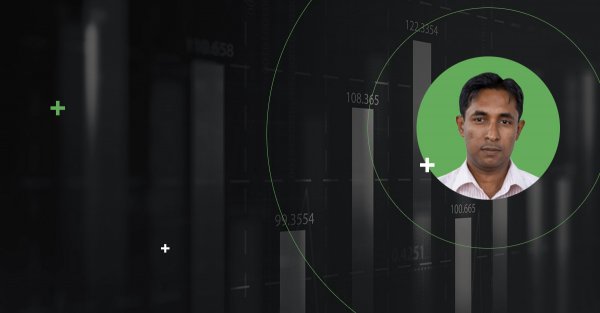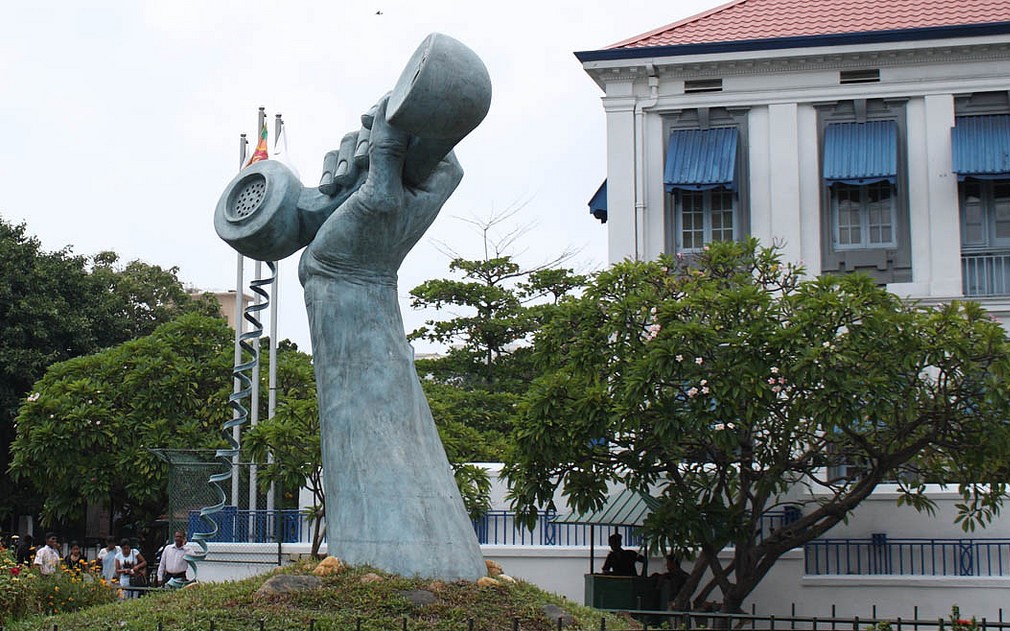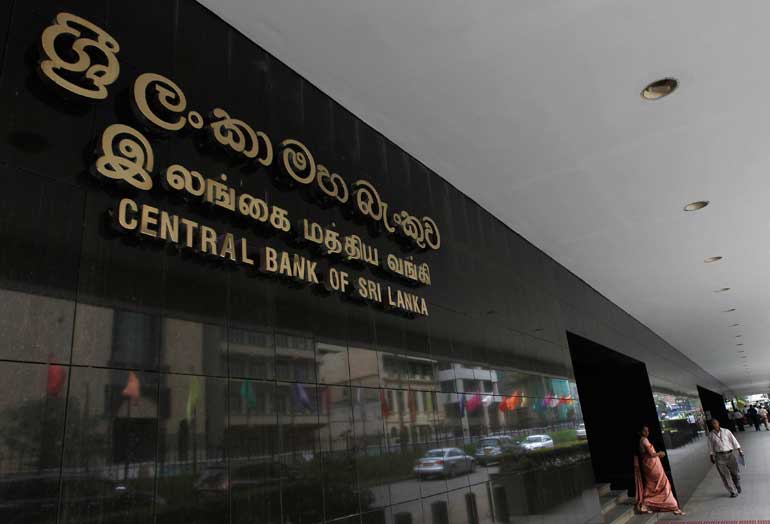
It’s been nearly two years since the controversial transaction of treasury bonds, popularly referred to as the bond scam (thankfully, the media has yet to brand it #bondgate), first made headlines. And, like an unwelcome houseguest that refuses to go away, it continues to be a thorn in the side of the Yahapalana Government ‒ or at least, the UNP side of the Government ‒ repeatedly and relentlessly bringing into question what remains of the administration’s fast eroding credibility.
Because of its sensitive nature (and not at all for reasons blatantly political, one is certain), President Maithripala Sirisena ‒ ably egged on by his newfound loyalists in the SLFP ‒ has appointed a Commission of Inquiry (CoI) to look into the matter. The CoI is required to report its findings to the President within three months of its appointment and make recommendations on what actions, if any, ought to be taken going forward. Confusion appears to reign, however, what with no one having a clear idea of what the Commission is mandated to do.
Two Commissions?
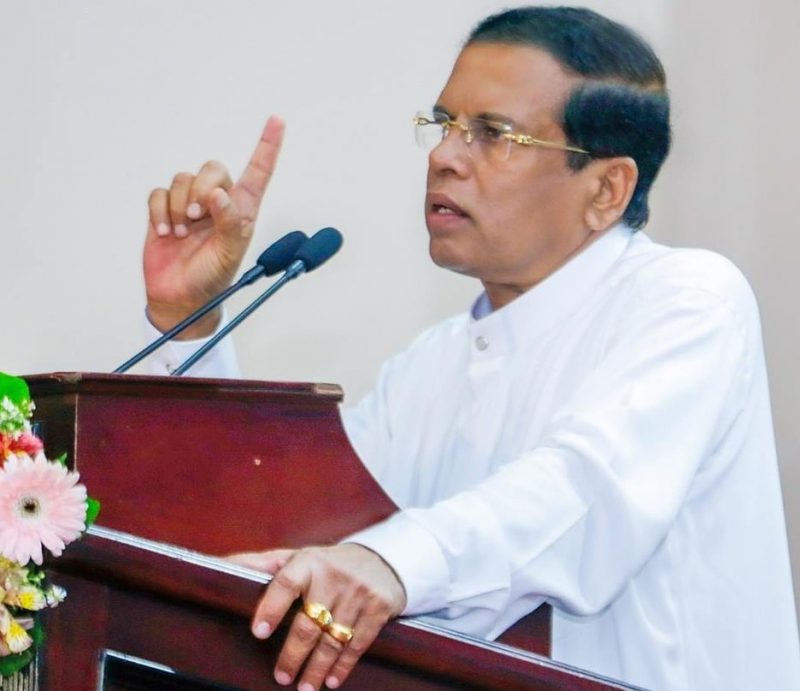
There was some initial confusion on the mandate of the Commission of Inquiry appointed by President Maithripala Sirisena. Image courtesy ceylonews.com
Right from the get-go, those assigned to the CoI seem to have made a blunder. In its announcement seeking public representations, the CoI members make references to both a Commission of Inquiry and a Presidential Commission. As pointed out by The Sunday Times, these are two separate entities. The Commission of Inquiry Act, the newspaper’s website pointed out in its breaking news section on Monday (February 13), was enacted all the way in 1952 while the Presidential Commission of Inquiry Act was only legislated in 1983. The references in the announcement, therefore, imply that two separate commissions have been appointed to investigate the bond scam, when in reality, President Sirisena has signed a warrant only for a single CoI.
Mandate
In issuing the warrant, President Sirisena noted that it is “in the national interest to conduct such an inquiry into the bond issuance matter in order to determine what measures should be adopted so there would be no recurrence of such acts in the future.”
A closer look at the literature reveals that the CoI is, in fact, a fact-finding mission rather than one mandated to investigate any criminal activity. This is in contrast to statements previously made by SLFP bigwigs that the bond scam needed to be investigated as a criminal case rather than a civil case ‒ a sentiment shared by the President himself. Minister Susil Premajayantha, for example, told journalists on January 26 that the case must not be allowed to be treated as a “civil dispute of unjust enrichment, but rather a criminal case where wrongdoings have to be proved beyond reasonable doubt,” echoing the remarks made by his boss at the Abayarama temple the previous day.
The gazette notification issued on January 27 detailing the particulars of the CoI (as opposed to the nonexistent presidential commission hitherto called for by the SLFP) contains 10 terms of reference that instructs the Commission to inquire into and report on, among other things:
- The management, administration, and conduct of affairs of the Central Bank of Sri Lanka in respect of the matter of bond issuances
- Whether there has been any malpractice or irregularity or non-compliance with, or disregard of, the proper procedures, resulting in damage or detriment to the Government or the Central Bank
- Whether such non-compliance with, or disregard of, proper procedures has resulted in the improper or irregular or discriminatory award of any such tender for sale of bonds
- Whether there has been misuse or abuse of power, influence, interference, fraud, malpractices, nepotism or any act or omission connected with corrupt activity in relation to the said matter
The President further directs the commission to “make recommendations” in the CoI’s report to be submitted by the end of three months ‒ although, there is precedence for extending the deadline if required.
The mandate of the CoI, it appears, does not extend to investigations of any criminal act, at least going by the gazette notification, and is restricted to finding irregularities and other aspects that come within the confines of civil law. It also includes a provision that gives anyone who testifies at its hearings relative impunity, speculated to require fresh investigations at a later date. Regardless, by the end of the three months, the President should have a clearer picture of exactly what went wrong where ‒ assuming, of course, the Commission is allowed to carry out its mandate without any interference.
Speaking to this writer on the sidelines of the SLFP’s weekly press briefing, Party Spokesman, Deputy Minister Dilan Perera, contended that any evidence presented before the CoI can “definitely” be made of use to file criminal charges.
“The President got to know that the Attorney General and the Police were only looking at filing cases for civil liabilities. But the evidence before this Commission can be made use of to file criminal charges,” he said.
He maintained that since the CoI isn’t a Special Presidential Commission, its findings can indeed be used to file charges.
The Deputy Minister further said that no separate investigation would be required in order to gather useful evidence.
Audit Drama
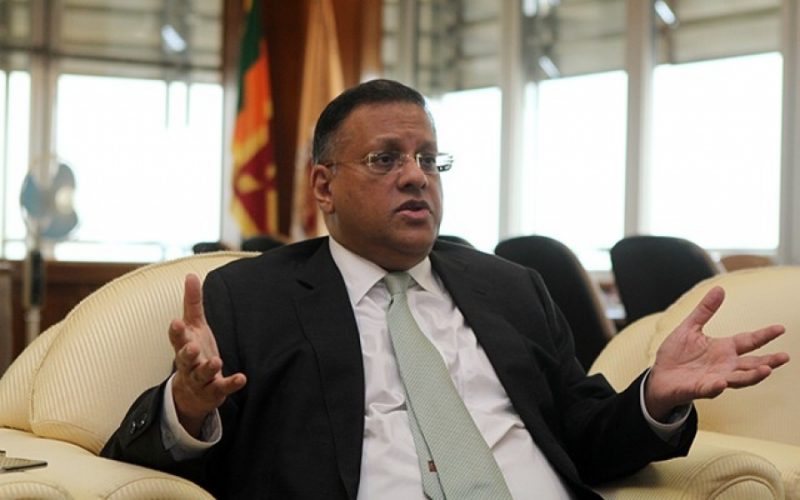
Former Central Bank Governor Arjuna Mahendran continues to claim innocence and denies any wrongdoing. Image courtesy asianmirror,lk
In a fresh scandal, a leaked Central Bank audit report of Former Governor Arjuna Mahendran alleging embezzlement drew the ire of the SLFP side of the Government. State Finance Minister Lakshman Yapa Abeywardana recently told journalists that the report had found irregularities with regard to the former Governor’s expenditure, accounting for over Rs. 66 million on foreign tours, including hotel accommodations, credit card usage for personal expenses, etc. (Though an argument can be made that the alleged expenses are not as excessive as the reports imply.)
“No Government servant has the authority to misuse public money. Audit is a tool of financial control, which is used to safeguard an organisation against fraud. Thereby, the former Governor is bound to answer for this internal audit,” the Daily FT quoted him as saying.
Refuting these allegations, a statement issued to the media by Mahendran said: “These statements are libellous in the extreme. They are based on extremely dubious and unverified sources.”
In his statement, the Former Governor went to the extent of accusing what he called a group of “disgruntled CB employees closely allied with a former governor” of having lobbied for his removal, supposedly because he stood in the way of their excesses paid for by the public.
“They (disgruntled CB employees) have effectively scuttled investigations into their shady practices from the past. These include buying gold at very high prices, buying highly risky Greek bonds, advising the Government to undertake a highly risky hedging strategy for petroleum imports and incurring huge losses for the Central Bank for three consecutive years by undertaking dubious foreign bank borrowings guaranteed by the Central Bank,” he said.
“For the record, all expenses incurred by me while serving as Governor of the Central Bank, were made according to proper procedures and audited by the Auditor General’s department,” he added.
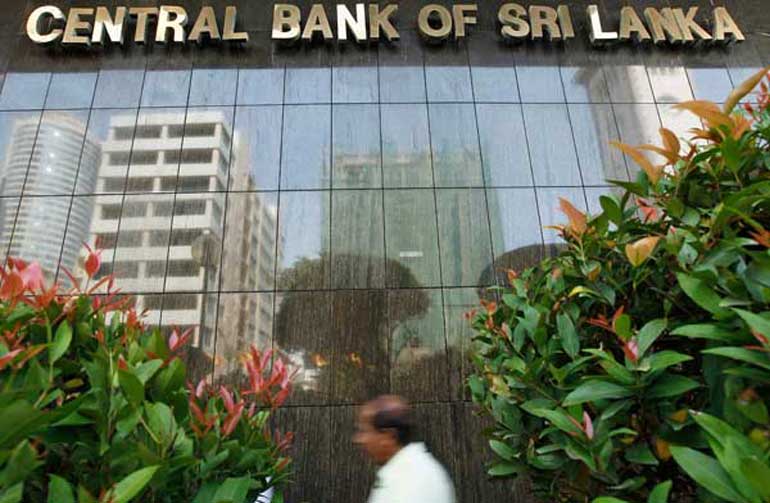
An internal audit report allegedly leaked from the Central Bank has detailed expenses to the tune of Rs. 66 million which an SLFP minister recently said was second only to the bond scam. Image courtesy ft.lk
Perpetual Treasuries Hits Back
The Central Bank’s Monetary Board had earlier directed Perpetual Treasuries Ltd., the controversial financial firm at the centre of the controversy, to not bid at any primary auction exceeding 12.5% of the total amount offered at said auction, and to not bid over 20% of the offered amount of each item representing different maturities.
“The daily aggregate of the secondary market transactions by [Perpetual Treasuries] in government securities shall not exceed Rs. 1 billion; it shall not, except with the prior written approval of the Monetary Board, distribute its profits, retained earnings or reserves; it shall not enter into any transaction for consideration or otherwise, except with the prior written approval of the Monetary Board, in respect to anything not connected with the activities of a primary dealer,” said the directive.
On Tuesday this week, Perpetual Treasuries Ltd. filed a writ petition in the Court of Appeal, seeking an injunction on these directions, claiming that, in the absence of no formal violation of procedure by the company in the alleged scam, the true intentions behind the issuing of the directions are “mala fide and ultra vires of the regulatory powers of the respondents.” In plain English, the directions, they claimed, were issued to fulfill an extraneous agenda.
Last year, Perpetual Treasuries reported an earth shattering profit of Rs. 5 billion. In the writ application, the company has said that, if the Monetary Board’s directions were enforced, it would suffer “grave and irremediable financial loss and would be driven to bankruptcy.”
PM Gets A Word In
When asked to comment on the Commission of Inquiry, Prime Minister Ranil Wickremesinghe, who himself has been taking flak for his alleged role in the scandal, chose to highlight his party’s magnanimity in taking the initiative to investigate the matter ‒ footnotes notwithstanding.
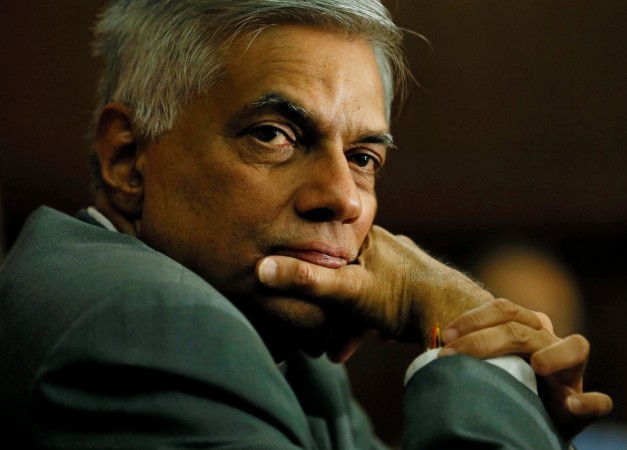
Prime Minister Wickremesinghe has also been receiving flak for his alleged role in the scandal. Image courtesy Reuters
“When the allegation was made, it went to the Supreme Court, which proceeded to throw out the case I appointed a committee and the committee said the transaction required further investigation and then COPE took it over. I said we’ll have a member of the Opposition chair it, and all the members of COPE gave a unanimous report. On the reasoning there were differences of opinion, some came on as footnotes, but everyone agreed. And I said as soon as that was presented I said we’ll fix a date for a debate in Parliament. This is what happens in a democracy,” he was quoted as saying.
Wickremesinghe then went on to harken back to the Greek bond scandal and the controversial hedging deal, both carried out under the Rajapaksa regime.
“The Greek bonds were not investigated, the hedging bonds were not investigated, everything else was not investigated, this is the only one that was investigated. Now I’m waiting for every media [outlet] to give me one minute and say: ‘you did the correct thing, others didn’t,’ but you (media) can’t do it because you (media) went and ate at his table,” he said.
What Next?
The SLFP at its weekly media briefing this week said that President Maithripala Sirisena has been playing a decisive role in resolving the crises the country has been engulfed in, one of which, party spokesmen said, has been the bond scam ‒ not so subtly implying that it is the SLFP that’s been keeping their partners in the Yahapalana Government in check, thereby preventing the country from going from bad to worse at the hands of the oh-so-treacherous UNP.
As revealed by the COPE in its report last year, there is no question that a colossal wrongdoing has taken place, resulting in what is undoubtedly one of the biggest financial scandals in the country’s history. While it is true that the blame for the fiasco can be laid squarely at the door of the UNP, it is hoped that the powers-that-be – that is, both the SLFP and the UNP – opt out of playing party politics for once and impartially and collaboratively investigate the matter in a way that doesn’t threaten the integrity of the coalition. The onus, then, is on the higher-ups of the UNP to stop protecting the culprits and let justice take its course. The SLFP, for its part, ought not to allow the scandal to turn into the Achilles Heal of the Government that many expect it will [sooner rather than later] be, setting back the few but all too important democratic gains made by the party’s partnership with its traditional rival. Anything else, it goes without saying, will simply be playing into the hands of those looking to fish in troubled waters and, with the local government elections fast approaching, that it not a mistake neither the UNP nor the SLFP can afford to make.
Featured image courtesy ft.lk




